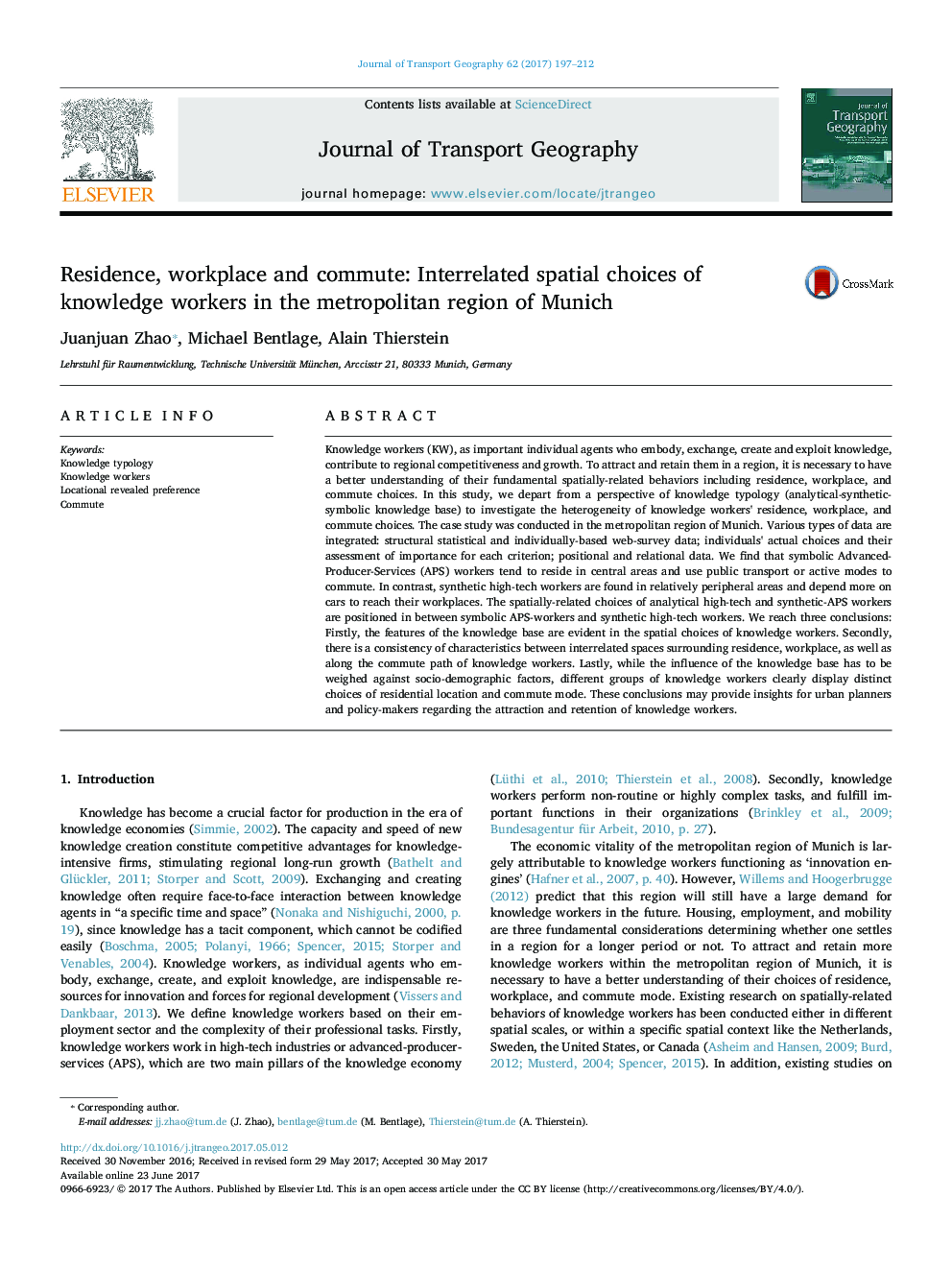| Article ID | Journal | Published Year | Pages | File Type |
|---|---|---|---|---|
| 5117535 | Journal of Transport Geography | 2017 | 16 Pages |
Knowledge workers (KW), as important individual agents who embody, exchange, create and exploit knowledge, contribute to regional competitiveness and growth. To attract and retain them in a region, it is necessary to have a better understanding of their fundamental spatially-related behaviors including residence, workplace, and commute choices. In this study, we depart from a perspective of knowledge typology (analytical-synthetic-symbolic knowledge base) to investigate the heterogeneity of knowledge workers' residence, workplace, and commute choices. The case study was conducted in the metropolitan region of Munich. Various types of data are integrated: structural statistical and individually-based web-survey data; individuals' actual choices and their assessment of importance for each criterion; positional and relational data. We find that symbolic Advanced-Producer-Services (APS) workers tend to reside in central areas and use public transport or active modes to commute. In contrast, synthetic high-tech workers are found in relatively peripheral areas and depend more on cars to reach their workplaces. The spatially-related choices of analytical high-tech and synthetic-APS workers are positioned in between symbolic APS-workers and synthetic high-tech workers. We reach three conclusions: Firstly, the features of the knowledge base are evident in the spatial choices of knowledge workers. Secondly, there is a consistency of characteristics between interrelated spaces surrounding residence, workplace, as well as along the commute path of knowledge workers. Lastly, while the influence of the knowledge base has to be weighed against socio-demographic factors, different groups of knowledge workers clearly display distinct choices of residential location and commute mode. These conclusions may provide insights for urban planners and policy-makers regarding the attraction and retention of knowledge workers.
